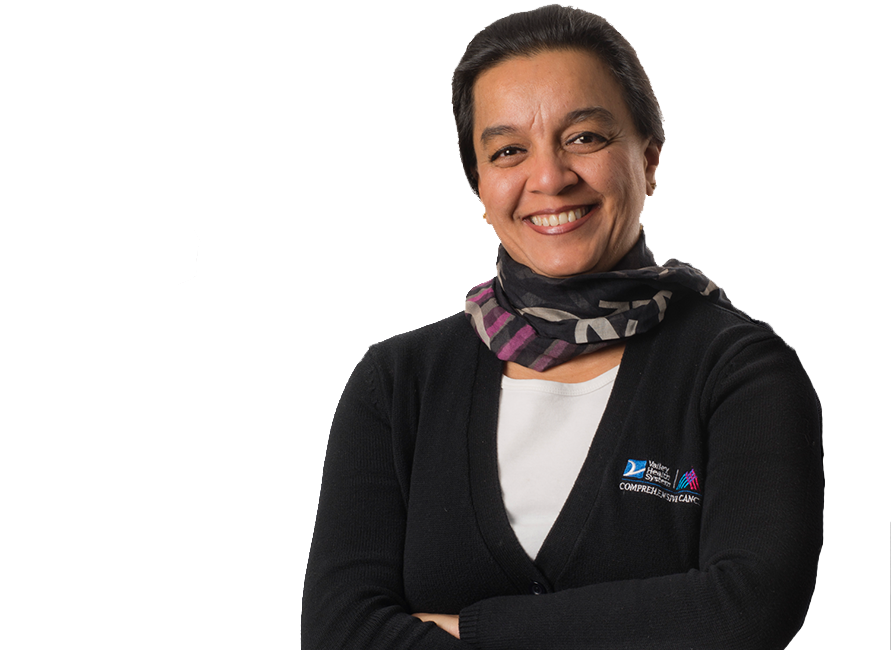As you learn more about your available acoustic neuroma treatment options in the northern NJ area, it can be helpful to understand more about the recovery period following each. Whether you already have your procedure scheduled or are still in the treatment planning phase, the following information will give you an idea of what to expect following two common acoustic neuroma treatments: traditional surgery and Gamma Knife radiosurgery.
Acoustic Neuroma Surgery Recovery
Your doctor may have recommended surgery to remove all or part of your acoustic neuroma, especially if it is large and they cannot treat it using Gamma Knife alone. Your doctor will be the person to give you the most personalized insight into your recovery, but the timeline below can give you an idea of what to expect on a general level.
Let’s have a conversation about your acoustic neuroma.
Let’s have a conversation about your acoustic neuroma.
Immediately After Acoustic Neuroma Surgery
As soon as your surgery is complete, you will recover in an intensive-care room until your doctors determine that you are fully awake from your anesthesia and stable. They will monitor your breathing, blood pressure and heart rate to ensure they return to normal levels before moving you to your recovery room.
Your First Week
Most patients will spend about 3-4 days recovering in the hospital during their acoustic neuroma surgery recovery. That will allow doctors to monitor your recovery and watch for any signs of side effects following your procedure. You will gradually increase your activities during the week, and you will receive medications to help ease any pain or nausea you may be experiencing. Once your doctor determines you are ready, you will be dismissed from the hospital to begin your recovery at home.
Two Weeks After Surgery
For the first two weeks of your acoustic neuroma surgery recovery, you will spend a lot of time resting. Your doctor will give you specific activity restrictions and you will probably be feeling less fatigued by the two-week point. If your doctors prescribed narcotic pain medications, they might begin to transition you to over-the-counter medicine. You can also expect to have any sutures or staples removed around this point.
One Month After Surgery
Around a month after your surgery, you will still be on activity restrictions but will likely be feeling more like your normal self, including fewer headaches. Doctors clear most patients to return to daily activities, including working, around 6-12 weeks following surgery. If you are still experiencing issues with hearing or movement, you may be referred to a specialist at this point.
Six Months After Surgery
By this point, you can expect to be back at work and resuming any other activities without any restrictions. Some patients will continue working with specialists through this period. You will likely have follow-up appointments with your doctor to discuss any lingering symptoms and take follow-up imaging. Your doctor will work with you to develop a follow-up schedule based on your individual needs.
Recovery Following Gamma Knife for Acoustic Neuroma
Because Gamma Knife radiosurgery is a noninvasive procedure and only delivers radiation to the target area, recovery is often rapid and mild. The procedure typically takes only 15-60 minutes, and many patients only require a single treatment session.
Immediately After Gamma Knife
Your Gamma Knife procedure occurs in an outpatient setting, which means you do not need to stay overnight in the hospital. Once your treatment is complete, you will be released to return home within a few hours. Some patients experience headaches and nausea during this time, so your doctor may prescribe you medications to make you more comfortable.
Your First Days
Gamma Knife does not require any incisions and does not dose the entire brain with radiation, which means most patients can resume activities and return to work within a day or two. You may be scheduled for further treatment sessions during this period, depending on the size and location of your tumor. Some patients undergo up to five treatment sessions.
You may have a headache, fatigue, nausea, or itching at the treatment site during this time. These are transient and should resolve within the first week. Again, your doctor may give you medications to help with any side effects.
Your First Weeks
Many patients experience relief from symptoms within the first weeks of treatment. However, it is important to remember that acoustic neuroma surgery recovery is a personal process and may even take months.
Six Months Later
At this point, you likely have significant relief from most, if not all, of your symptoms. Around this period, some patients may experience a delayed side effect of Gamma Knife, radiation effects, which is similar to swelling and means the tumor is responding to the treatment. Should this occur, your doctor will prescribe medication to resolve the issue. You can expect to have follow-up appointments through this period to assess any lingering symptoms and for imaging.
Your Own Acoustic Neuroma Recovery
It is crucial to keep in mind that no two patients are exactly alike. Your acoustic neuroma is a specific size and shape and is located in a particular area. You also have individual characteristics such as your age, other health conditions and personal preferences. Your doctor will consider all of these factors, among others, before making any treatment recommendations.
Along the same lines, your recovery will be a very personal process. The information here helped give you a general overview of each procedure, but other factors may come into play for you as an individual. Your doctor will be the person who can best provide you with details about what you can expect during your acoustic neuroma recovery, so be sure to carry the information you learned here into your next visit.

